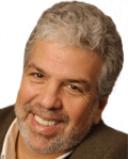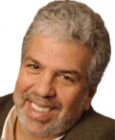
Happiness
The Character Harmonica
VIA character strengths play like the notes of the harmonica
Posted October 28, 2010
Ever blow on a harmonica? Whatever sound comes out sounds pretty good. Compare that with walking up to a piano and slamming your hand down on it. Pretty much any sound that emerges will sound bad. That's because of the way the notes are ordered on each instrument. The notes on a piano are arranged in what is called a chromatic scale - C, C#, D, E, F, F#, G, etc. - each note a half note from the ones around it. But, the notes on a harmonica are arranged in "thirds" - each note is three notes from the ones surrounding it. And, it just so happens that "thirds" are harmonic. Hence, the name "harmonica," and why any single blow on the instrument sounds pretty good.
 I think character strengths play a lot like the notes of the harmonica. They tend to look good, feel good, and produce good results when we play them - alone or together with other notes. And, most of us play our character traits out in life without particular consciousness or developed skill at doing so. I think that's because the topic has largely been approached in an overly moralistic way that does injustice to the splendidly individualistic nature of character. Prior to 2004, most approaches to character have focused on developing the same handful of character traits in all of us, with the goal being sameness of character. Yet, character, by definition, is the constellation of traits that distinguish us from one another as opposed to making us the same.
I think character strengths play a lot like the notes of the harmonica. They tend to look good, feel good, and produce good results when we play them - alone or together with other notes. And, most of us play our character traits out in life without particular consciousness or developed skill at doing so. I think that's because the topic has largely been approached in an overly moralistic way that does injustice to the splendidly individualistic nature of character. Prior to 2004, most approaches to character have focused on developing the same handful of character traits in all of us, with the goal being sameness of character. Yet, character, by definition, is the constellation of traits that distinguish us from one another as opposed to making us the same.
What happened in 2004? That was the year the nonprofit organization VIA Institute on Character (www.viacharacter.org) published the groundbreaking work spearheaded by Drs. Martin E. P. Seligman and Christopher Peterson. With input from top scholars in the field, these scholars created the VIA Classification of Character Strengths and the scientifically valid VIA Survey for measuring these strengths of character. The publication of these tools laid the foundation for the first time for serious scientific inquiry into what is best about human beings and how we use our strengths of character to build good lives and societies.
This new science of character allows us now to correct course. It identifies not just a handful of traits arbitrarily chosen by a handful of adults, but instead articulates 24 positive traits that are universal in human beings and that combine differently in each of us to create the diversity of character that we see in humanity. Just as we all share a common set of physical traits that combine uniquely to make us all look different, positive personality traits combine uniquely to make us all be different - i.e. to make us all act and react differently in feeling, thought, and behavior.
So, all of us are standing with a "character harmonica" in hand. This harmonica has 24 "notes." Most of us are "hacks" at playing them, mainly because no one has pointed out that we possess this variety of character strengths and because we have been directed by prevailing cultural forces to pay attention to other things such as personal appearance and material possessions (watch the television "shows" on Home Shopping Network and QVC and you'll see that it's mainly fitness, beauty, clothing and jewelry that are being sold). We also haven't been driven to develop our character traits more deliberately because, like the notes of a harmonica, they "sound" OK just as they naturally occur.
But, just listen to recordings of harmonica greats Junior Wells, James Cotton, Paul Butterfield, or even Bob Dylan, and you'll appreciate just how much this little instrument can really produce. With practice, each of us can develop our playing skills - how we use our character strengths. Nature has provided us all with this wonderful "instrument" to play, and we now have a developing science that is increasingly helping us learn more about it. Let's teach ourselves, each other, and especially our kids, how to play this instrument like pros. Except for the most gifted amongst us, that means practice...practice...practice.
I can already hear the harmonicas playing in our schools, our workplaces, our families, and in our streets... celebrating the diversity of the human race at its best. It makes my heart soar like an eagle.

